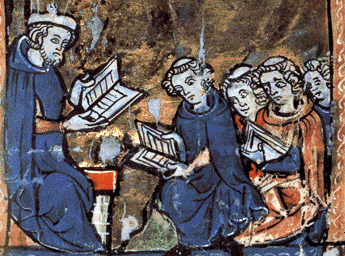Lausavísur §
Edited by Russell Poole
Lýtr ‘sinks’
[1, 3] lýtr; kveðr ‘sinks; greets’: If the present lausavísa indeed contains a jest, it might lie in the ironic use of the verbs lúta ‘sink’ (which occasionally means ‘bow, submit’ as in fealty, e.g. GunnlI Aðdr 1/3V (Gunnl 3)) and kveða ‘greet’, evoking courtly ceremony (which some Norwegian rulers and their entourage might have participated in while on embassies to Carolingian and English political centres).
Closebifafk ‘’
Closekveðr ‘greets’
[1, 3] lýtr; kveðr ‘sinks; greets’: If the present lausavísa indeed contains a jest, it might lie in the ironic use of the verbs lúta ‘sink’ (which occasionally means ‘bow, submit’ as in fealty, e.g. GunnlI Aðdr 1/3V (Gunnl 3)) and kveða ‘greet’, evoking courtly ceremony (which some Norwegian rulers and their entourage might have participated in while on embassies to Carolingian and English political centres).
Closeskreyju ‘skreyja (‘Wretch’)’
[4] skreyju ‘skreyja (“Wretch”)’: The meaning of the nickname is not beyond doubt, but for the sense ‘wretch’ see Finnur Jónsson (1907, 349); Lind (1920-1, 333). In Lv 4 Eyvindr is seemingly the target of both a direct taunt and an indirect one alluding to a defeat attested in Egill Lv 10V (Eg 15; see Note to Lv 4/7-8 below). Both Eyvindr skreyja and his comrade Álfr askmaðr (see Note to Lv 5/2, 3) are somewhat obscure personages. They are said in Hkr to be maternal uncles of the Eiríkssynir (Gunnhildarsynir), hence brothers of Queen Gunnhildr, though this linkage is generally regarded as suspect (ÍF 26; Egils saga, ÍF 2, 123-4 and n.).
CloseTeaching text: text section
Here you can see a piece of text. Clicking on words in the text will show you the dictionary headword, grammatical information and notes on how the word is used.
You should pay careful attention to the explanation of each word. You can test your knowledge using the translation and other exercises.
In some cases there may be audio of a modern Icelandic rendition of the text on this page.
